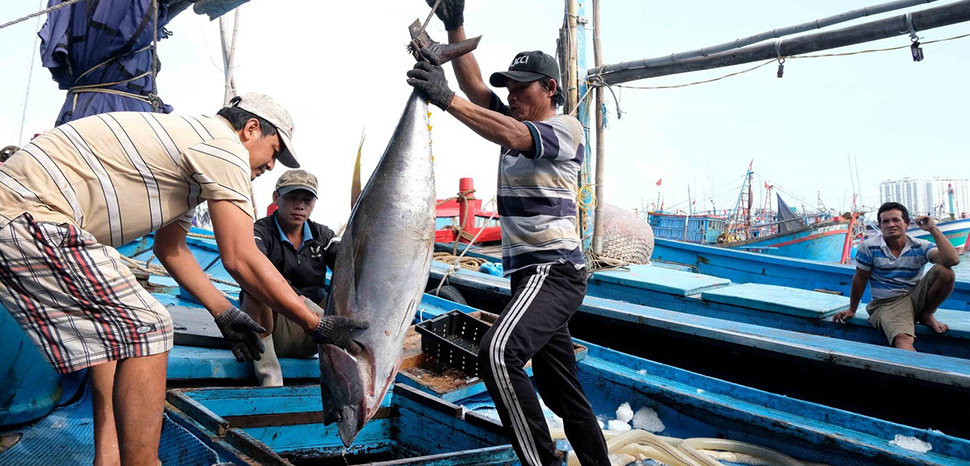Vietnam’s fisheries exports approach nearly US$2 Billion
Vietnam’s fisheries exports surged in the first quarter of the year, generating close to US$2 billion in revenue, marking an 8% increase year-on-year, according to the Vietnam Association of Seafood Exporters and Producers (VASEP). Notably, the country’s shrimp exports exceeded US$690 million during this period, witnessing a significant 15% rise compared to the previous year. Tra fish, tuna, and crab exports also saw impressive gains, fetching nearly US$424 million, US$220 million, and over US$47 million, respectively, marking increases of 0.4%, 22.2%, and nearly 60%.

VASEP Communications Director Le Hang highlighted the prominent role of the US, Japan, and China as primary importers of Vietnamese fisheries products. Exports to these countries witnessed robust growth, with shipments to the US climbing by 16%, China by 30%, and Japan by over 5%. Specifically, shrimp exports to the US saw a 15% rise, while tuna, tra fish, and crab exports experienced substantial increases ranging from 13% to 53%.
In the Chinese market, prawn and crab shipments surged by 11 and seven-fold, respectively, compared to the same period in 2023. Notably, Vietnam’s white-leg shrimp imports to China doubled as it reduced purchases from Ecuador. Similarly, exports of shrimp and crab to Japan showed positive trends, with growth rates of 20% and 23%, respectively, while Vietnamese tra fish gained popularity in Japan, witnessing a 25% increase in shipments.
However, challenges persist in the EU and the Republic of Korea (RoK) markets, where recovery for shrimp and tra fish exports remains uncertain. Nevertheless, tuna exports to these regions soared by 27% and 15%, respectively.
Experts emphasized the need for Vietnamese enterprises to proactively navigate barriers such as the European Union’s yellow card on illegal fishing, US anti-subsidy duties, and geopolitical tensions. They suggested seeking new opportunities in international fisheries fairs and exhibitions in key markets like the US, Europe, Japan, and the RoK to facilitate better recovery.
While opportunities arise from rejected shrimp shipments from Ecuador and India due to antibiotic contamination, Vietnamese exporters were advised to adhere strictly to import regulations to avoid barriers and protectionism. VASEP Chairwoman Nguyen Thi Thu Sac urged local enterprises to focus on ensuring a safe supply chain and origin traceability to enhance competitiveness and achieve sustainable development.
To support the industry, VASEP and its members called for better administrative reforms and government support, emphasizing the importance of collaboration between the fisheries business community and state agencies to boost exports to both traditional and emerging markets such as India, the Middle East, and ASEAN.


